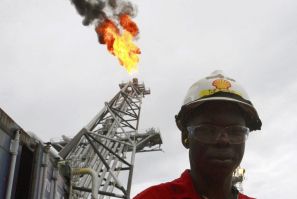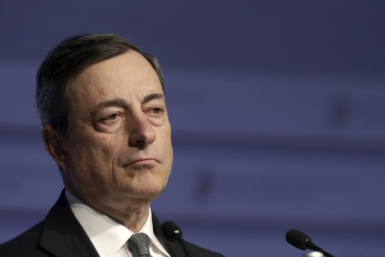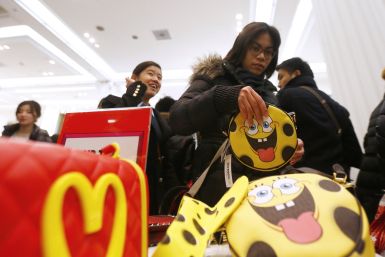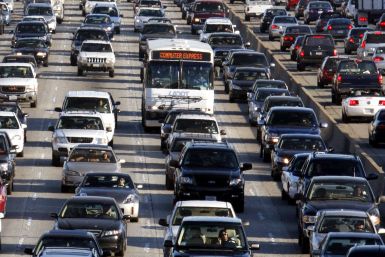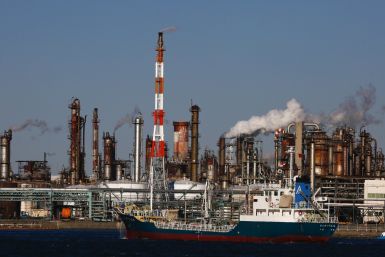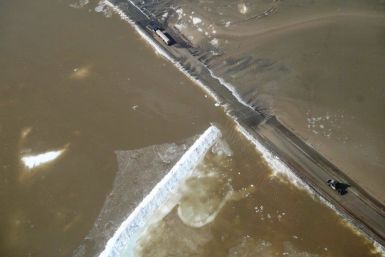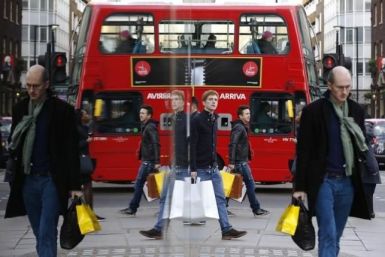One firefighter died during a rescue attempt in Oklahoma, while thousands of people have been evacuated both there and in Texas.
Greece will be high on the agenda as finance ministers from the world's largest developed economies meet in Germany this week.
The Cleveland Police Department confirmed the detention of some protesters, including one who was charged with assault.
May is on track to become the wettest month ever for Oklahoma City.
Mario Draghi says countries should act quickly on recommendations the central bank has made to complete economic and monetary union.
"We are on the final stretch of a painful period shaped by the government's negotiations with the institutions," Greek Prime Minister Alexis Tsipras said.
Bank officials were instructed to avoid mentioning the purpose of the secret project in an email leaked to the Guardian in the U.K.
At stake was the controversial free trade deal, the Transatlantic Trade and Investment Partnership.
The Fed’s objectives of maximum employment and price stability are best achieved by proceeding cautiously, said Federal Reserve chair Janet Yellen.
Most people think bitcoin is a fringe digital currency, but major institutions are experimenting with its underpinning technology to track real estate and other assets.
The White House's latest regulatory agenda reveals ongoing delays in key health and safety rules for workers.
Nearly 34 million cars in the U.S. may be equipped with air bags that shoot shrapnel when deployed.
Lawmakers say carving $700M out of Medicare to help people who lose jobs because of-free trade agreements sets a bad precedent.
Millions of Americans order cheap prescription medicines online. U.S. pharmacists and the pharmaceutical industry are pushing hard to stop the practice.
Upcoming World Cup host Qatar still hasn't implemented crucial labor reforms, laments Amnesty International.
In a 62 to 38 vote, Democratic opponents led by Elizabeth Warren couldn't rally enough opposition to hold trade promotion.
As the global weather phenomenon sets in this year, experts are predicting that the prices of some popular foods could double.
The strength of the figures may further ease concerns of a slowdown in Britain's economy.
Li was speaking in Brazil where he has been announcing trade, finance and investment deals worth tens of billions of dollars.
A new survey reveals U.S. workers' differing methods of commuting. But the car remains the overwhelming first choice.
A report from the AFL-CIO targets a key argument for the proposed Trans-Pacific Partnership.
The USTR's annual report on foreign trade barriers offers a rare glimpse into the agenda of U.S. negotiators.
The price rises came after a session on Tuesday that saw oil slide over 3 percent on a dollar rally and concerns of a building glut.
Los Angeles becomes the latest city to approve a $15 minimum wage, which is to be in force by 2020.
Charities promised donors their money would support treatment. Instead, administrators padded their own pockets.
The Dalton Highway is an essential corridor that serves the state’s vast oil fields, but a portion of the road is currently covered by 2 feet of water.
Legislators could not muster the higher-than-usual support needed to change laws approved by ballot initiative.
The upside-down world of drug pricing operates with relative immunity to typical economic forces.
Government priorities for reform include tax cuts and private funding for infrastructure projects, and another $40 billion in high-speed rail projects.
Few economists think Britain is at risk of Japanese-style entrenched price falls.








